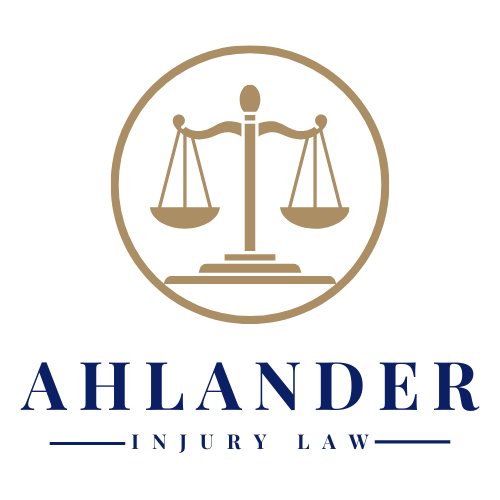How to Handle Insurance Adjusters After an Accident
Navigating the aftermath of an accident can be overwhelming, and one of the first calls you’ll likely receive is from an insurance adjuster. These representatives, while courteous, are employed by insurance companies with a primary goal: to minimize the payout on your claim. Understanding how to interact with insurance adjusters is critical to protecting your interests and ensuring you receive fair compensation. AtAhlander Injury Law, we strive to arm you with knowledge so you can make informed decisions during this crucial time.
Understanding the Role of Insurance Adjusters
Insurance adjusters are tasked with investigating claims, assessing damages, and negotiating settlements. While they may present themselves as advocates for your recovery, they are ultimately working for the insurance company, not for you. Their performance is often measured by how little they pay out, not by the fairness of the settlement.
It’s important to recognize that adjusters are highly trained in negotiation tactics. Insurance companies save billions annually through claim minimization strategies. This underscores why careful communication with adjusters is essential.
Common Tactics Used by Insurance Adjusters
Insurance adjusters utilize several common strategies to reduce the value of your claim:
1. Early Settlement Offers:
Adjusters may offer a quick settlement soon after the accident, often before the full extent of your injuries or damages is known. These offers are typically much lower than what you may ultimately be entitled to receive. Accepting too soon could mean waiving your right to fair compensation.
2. Requesting Recorded Statements:
It’s common for adjusters to ask for a recorded statement. They may frame this as a standard procedure, but any inconsistencies or poorly worded responses can be used against you later in the claims process. You are not obligated to provide a recorded statement without consulting an attorney.
3. Downplaying Injuries:
Adjusters may suggest your injuries are minor or unrelated to the accident, even if you are still undergoing medical treatment. This tactic can pressure you into settling for less than you need for ongoing care.
4. Delaying the Process:
Some adjusters may intentionally delay processing your claim, hoping that financial pressure will lead you to accept a lower settlement out of frustration or necessity.
5. Requesting Broad Medical Authorizations:
You might be asked to sign a medical release granting access to your full medical history. This can give the insurance company ammunition to argue that your injuries are pre-existing or unrelated to the accident.
How to Prepare for Conversations with Adjusters
When speaking with an insurance adjuster, preparation is your best defense. Begin by documenting everything related to your accident, including photos, contact information of witnesses, police reports, and all medical records. Keeping thorough records will help ensure your account remains consistent and verifiable.
If you’re contacted by an adjuster, it’s wise to politely decline to discuss details until you’ve had time to collect your thoughts. Remember, anything you say can be used to reduce or deny your claim.
Key Points to Remember:
- Limit what you share: Only provide the adjuster with basic information such as your name, address, and the date and location of the accident. Avoid discussing fault, injuries, or making speculative statements.
- Decline to be recorded: You are not required to give a recorded statement. Politely request that all questions be submitted in writing or that you respond at a later time after consulting with your legal representative.
- Do not accept the first offer: Initial settlement offers are rarely the best. Take time to review any offer, and don’t be afraid to negotiate or seek advice before making any decisions.
Protecting Your Legal Rights
Your primary goal after an accident should be to focus on your recovery. However, protecting your legal rights is essential to ensure that your future is secure. Consulting with an experienced personal injury attorney can be invaluable. At Ahlander Injury Law, our team understands how insurance companies operate and can help level the playing field.
Claimants represented by attorneys typically receive settlements three to five times higher than those who go it alone. Legal representation ensures that your rights are protected at every stage, from the initial conversation with an adjuster to final settlement negotiations.
What to Do If You Feel Pressured
If you ever feel pressured by an adjuster to settle or provide information you’re uncomfortable sharing, remember that you have the right to pause the conversation. Politely state that you are seeking legal counsel and will respond after consulting with your attorney. The law protects your right to representation and fair treatment.
When to Contact a Personal Injury Attorney
Contacting an attorney early in the process can prevent costly mistakes. If you have questions about your rights, concerns about how the insurance company is handling your claim, or simply want peace of mind, reach out to our experienced team at Ahlander Injury Law. We offer a free initial consultation to help you understand your options.
Empower Yourself After an Accident
Dealing with insurance adjusters is a critical part of the post-accident process. By understanding their tactics, preparing for every conversation, and knowing when to seek professional help, you can protect your interests and ensure you receive the compensation you deserve. Remember, you don’t have to face this process alone—Ahlander Injury Law is here to advocate for you, every step of the way.





